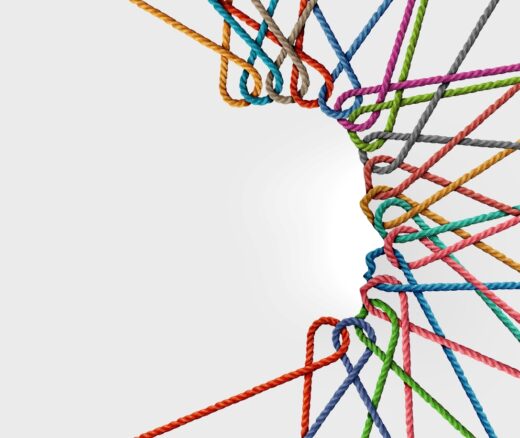
At-Home Alzheimer’s Blood Tests Surge, But Experts Warn the U.S. Isn’t Ready
Direct-to-Consumer Alzheimer’s Tests Risk False Positives, Privacy Breaches, and Discrimination, LDI Fellow Warns, While Lacking Strong Accuracy and Much More
Improving Care for Older Adults
Blog Post

When Medicare’s diagnosis-related group (DRG) payment system took effect in October 1983, hospitals adapted quickly, discharging patients faster to manage fixed reimbursement rates. Heart failure patients who once stayed eight to 10 days were going home in three to four days.
But LDI Senior Fellow Mary Naylor, then a fellow with what was then known as the U.S. Senate Committee on Aging and Finance, realized no one had thought about what happened after discharge. She saw how these shifts created new risks for older adults, as hospitals lacked the infrastructure to support care continuity.
“The DRG system goes into play, and now you have a shorter stay. But nothing has changed in care delivery,” said Naylor, Professor of Gerontology and Director of the NewCourtland Center for Transitions and Health at Penn Nursing. That gap became the impetus for her nearly four decades of work developing and refining the Transitional Care Model (TCM), a highly influential framework to improve care coordination for older adults with complex needs.
When Naylor joined the Penn faculty in 1986, she partnered with Dotty Brooten, an important School of Nursing mentor, as well as other LDI Fellows from the medical school, including the late Sandy Schwartz and Risa Lavizzo-Mourey. This multidisciplinary approach to TCM laid the groundwork for a key collaboration with Mark Pauly, then Director of the Leonard Davis Institute of Health Economics.
They began developing a nurse-led, evidence-based approach to ensure safer transitions from hospital to home. The model was built on a simple but novel premise: Advanced practice nurses, when empowered to coordinate care across settings, can reduce fragmentation, improve system performance, and be cost-effective.
Early NIH-funded randomized trials showed the model’s ability to reduce readmissions, lower costs, and improve patients’ functional outcomes and quality of life. The evidence grew through other RCTs, with a 2004 study showing patient groups who received the intervention had fewer readmissions (104 vs. 162) and lower mean total costs ($7,636 vs. $12,481).
Likewise, a 2018 study found that TCM led to a 30% to 50% drop in rehospitalizations, and net savings of about $4,500 per patient within five to 12 months of discharge. Comparative effectiveness research added more dimensions, showing improvements in patient outcomes, care quality, and cost reduction from cognitively intact to cognitively impaired older adults.
The model focuses on advanced practice registered nurses (APRNs) with specialized knowledge who meet patients during hospitalization, coordinate comprehensive discharge plans, visit homes within 24 hours of discharge, and provide intensive follow-up for about two to three months.
Just as importantly, the approach engaged family caregivers from the start. “In our first clinical trial, we figured out that if we didn’t involve caregivers, we were not going to get very far at all,” Naylor noted.
Despite strong evidence, widespread adoption proved challenging. In 2016, the Robert Wood Johnson Foundation wanted to support TCM. But when they asked how many systems used the model, Naylor’s team discovered it was not as many as they had hoped.
Follow-up investigations revealed barriers that the research trials hadn’t prepared them for.
One was state regulations, which varied dramatically. “Some state laws did not allow nurses who were not home care nurses to touch patients,” Naylor explained. “We had APRNs who could do something in one county and not in another.”
Union contracts, staffing models, and the need to build partnerships across fragmented delivery systems added complexity.
A major roadblock was payment structures that didn’t support the model’s intensive coordination. “We still don’t have full reimbursement in the fee-for-service world for the kind of work that we’re calling transitional care,” Naylor said.
The team responded by developing implementation tools, including web-based training modules and toolkits for health system leaders. A collaboration with the Stevens Institute of Technology created simulation models to help hospitals estimate TCM’s potential impact on their patients.
Despite barriers, the model has achieved substantial reach. A 2018 survey in Social Science & Medicine found that 59% of 582 respondents, representing 342 groups, had adopted or adapted TCM. About half were hospitals or integrated systems; the rest included primary care practices, accountable care organizations, post-acute care facilities, hospice organizations, and community-based groups.
Naylor’s sustained policy engagement contributed to system-level changes. Her six-year tenure on the Medicare Payment Advisory Commission (MedPAC) helped create transitional care management billing codes. Her board service at the National Quality Forum generated quality metrics for care coordination and transitions.
She spent more than a year working with relevant committees on the Hill and succeeded in ensuring there were provisions to advance evidence-based transitional care—both carrots and sticks—embedded in the Affordable Care Act.
One example, the Hospital Readmission Reduction Act, created financial incentives for hospitals to improve transitions.
Yet progress remains incomplete. “Transitional care payment codes are not adequate to deliver the kind of intensity of services that at-risk people need,” Naylor said.
While Medicare Advantage (MA) plans—now covering more than half of Medicare beneficiaries—have proven more adaptable to the model’s approach, fee-for-service reimbursement remains insufficient.
TCM continues to evolve. The COVID-19 pandemic accelerated educational dissemination, with nursing and health professional schools unable to provide traditional clinical experiences. They turned to TCM’s resources, which helped embed transitional and population health competencies into curricula, Naylor explained.
Her team is working with Maine’s largest accountable care organization to adapt the model for rural communities, which have historically been a gap, she explained. They are exploring how to capitalize on different team-based approaches, such as community health workers and community paramedics, who now can be trained to deliver and be integrated into transitional care.
They also expanded the model’s reach internationally, working with hospitals in Milan, Italy, to adapt this approach for cognitively impaired older adults.
If Naylor ran the Centers for Medicare & Medicaid Services, she would be pragmatic, paying for programs that evidence shows work.
“I would change every rule and regulation and enhance the provisions that will allow for people getting the care that we know they deserve, and that will serve them better, and their families,” she said.
Naylor supports enhanced bundled payment opportunities and population health payment models that would allow APRNs and team members to provide not just time-limited transitional services but longer-term support. “Within MA, we have been able to provide not just transitional care, but extend it for longitudinal care,” for patients who need continued contact, she noted.
She sees potential in federal initiatives like the Rural Health Transformation program, which offers $50 billion over five years for care redesign in underserved areas. It is a chance to bring evidence-based transitional care to scale in communities that have lacked access.
“We are aging rapidly, living longer,” Naylor said. “There is a critical need for us to think we’ve got to do it differently.”
The same question Naylor started with 30 years ago remains valid today. Who will ensure that vulnerable older adults don’t fall through the cracks during one of health care’s most precarious moments?
Her answer hasn’t changed: empower nurses, engage families, and pay for programs that coordinate care, minimize risks, and ensure safer transitions from hospital to home.


Direct-to-Consumer Alzheimer’s Tests Risk False Positives, Privacy Breaches, and Discrimination, LDI Fellow Warns, While Lacking Strong Accuracy and Much More

New Therapies Inspire Hope, Even as Access and Treatment Risks Continue to Challenge Patients and Providers

Penn LDI Senior Fellow Yong Chen Is an MPI in the 10-Institution NIA Undertaking

Precision Diagnostics Give Patients Clearer Answers About What Drives Cognitive Impairment

Findings Suggest That Improving Post-Acute Care Means Looking Beyond Caseloads to Nursing Home Quality

Ongoing Innovations in Diagnostics and Treatments Can Drive Cultural Openness in Discussing Causes, Experiences